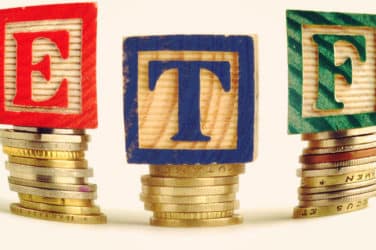
Dirk Manelski, chief technology officer at Pimco, said asset managers who can quickly integrate and analyse both market data and alternative data will have a competitive advantage.
Pimco recently hosted a technology forum which brought industry leaders together to debate and discuss issues which were relevant to both the firm and the asset management industry.

Dirk Manelski, Pimco
Manelski told Markets Markets that his priorities for this year include cloud migration, digital transformation and “data, data, data.” He added: “While these are the big change agenda items, priorities always need to include investing in our portfolio risk and analytics platforms.”
He joined Pimco this year from JP Morgan where he had been head of macro technology in rates, emerging markets, foreign exchange and commodities, and oversaw initiatives which included transforming the bank’s client-facing technology and its migration to common risk and pricing systems. Prior to JP Morgan, he was head of trading and risk technology at Deutsche Bank.
Speakers at Pimco’s tech forum included JP Morgan on the bank’s digital transformation, Bloomberg, R3, the distributed ledger company, and fintech Mosaic Smart Data.
“The ability to quickly integrate and analyse both market and alternative data will be a driver for differentiating asset managers,” added Manelski. “Mosaic Smart Data have done a good job at allowing users to intuitively use data and making information resonate visually.”
Mosaic Smart Data provides real-time data for fixed income, currencies and commodities. Last year MSX, its real-time data analytics platform, was deployed by JP Morgan across the bank’s entire global fixed income sales and trading division.
Matthew Hodgson, founder and chief executive of Mosaic Smart Data, launched the company after finding it impossible to get a consolidated view of data on all trades with one client across all products in his previous roles at Deutsche Bank and Solomon Brothers. Sellside firms have used Mosaic’s platform, which includes technologies such as predictive analytics and artificial intelligence, to find value in the trade data they generate as the information is presented visually and using natural language.

Matthew Hodgson, Mosaic Smart Data
Hodgson told Markets Media: “Our priority is to provide data analytics to institutions in real-time. We started in fixed income, currencies and commodities with performance analytics to the allow the sellside to measure profitability and focus on their key performance indicators for their business model.”
Buyside firms have corresponding needs and through analysing their interaction with brokers and clients, they will be able to improve service and profitability.
“The buyside also needs to understand the behaviour of their dealers and liquidity providers and will get the same benefits as the sellside from aggregating data on an industrial scale,” said Hodgson.”Asset managers can then start to build matching algorithms and to understand every metric around a transaction on an atomic level in real time, which is a complete sea-change.”
Morgan Stanley and consultancy Oliver Wyman said in a report this year that asset managers’ near-term data and technology efforts should be focused on tangible cost and efficiency gains. Their report said: “Data management still represents 10-20% of costs. Many managers have attempted large scale re-platforming but have achieved only mediocre savings, struggled with future-proofing and hampered their front-end agility. The use of data aggregation software can more effectively support near-term growth initiatives.”
Hodgson continued that MSX can be used to provide data analytics to the buyside, custodians or venues and large asset managers have shown interest. For example, asset managers sell funds through financial advisors but cannot measure the flow of funds on an industrial scale.
“Improving the data across this ecosystem will ensure they provide the right product in the right environment and allow peer group analysis so decisions are data-centric,” said Hodgson.
Morgan Stanley and Oliver Wyman said data science and artificial intelligence can help streamline the investment and distribution processes, but this will only be a source of real alpha for a few.
“While technology offers great potential to streamline the investment process, we think only a handful of managers with truly distinctive talent models or sources of proprietary data/analytics will be able to use this to drive alpha,” added their report. “Applying these techniques to better hone and target distribution may have a more immediate impact.”
Manelski said the increase in computing power and available data is key to the success of AI and machine learning. “However the industry needs to develop a common lingua franca for data,” he added.
He continued that Pimco is looking closely at blockchain as there are many areas where it could cut spend and inefficiency. However, he explained that the ecosystem of the buyside, sellside and market infrastructures need to come together so there is real value added to the community.
Manelski said: “We have a front door for fintech firms and defined assessment criteria to ensure they are evaluated consistently on how valuable they are and whether we should move forward.”
Last month Pimco entered into a strategic partnership with Beacon Platform Incorporated, a fintech which enables investment firms to build proprietary analytical models and tools in a controlled, secure environment connected to relevant market and enterprise data. As part of the partnership, the fund manager has acquired a minority stake in Beacon and will integrate the platform with its valuation models, risk analytics and technology.
Kirat Singh and Mark Higgins, Beacon co-founders, said in a statement: “We’re excited to partner with Pimco at a time when a seismic shift in technology has created opportunities to better access and deploy analytical investment models. Beacon’s modern software platforms give forward-thinking firms like Pimco the ability to adapt and thrive as the pace of innovation continues to accelerate.”
Pimco added that the partnership with Beacon is part of the firm’s broader strategic efforts to further integrate technology and quantitative research into the investment process. The fund manager has announced it will open an office this year in Austin, Texas, in part to recruit technologists to develop the firm’s underlying investment-related infrastructure.
Manelski said: “When prioritising technology, the investment needs to move us towards the North Star of our multi-year objectives.”






